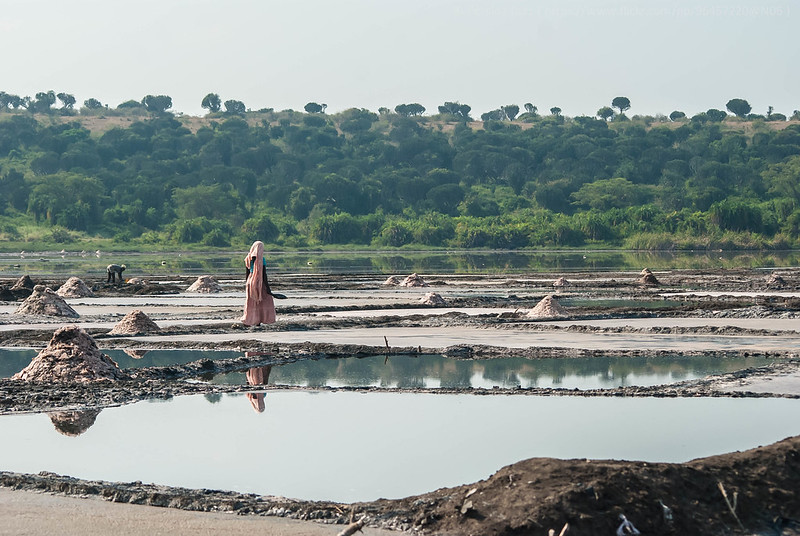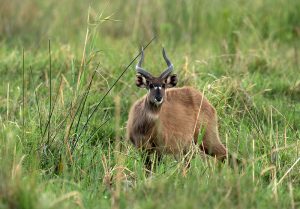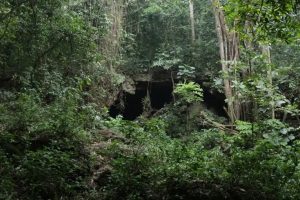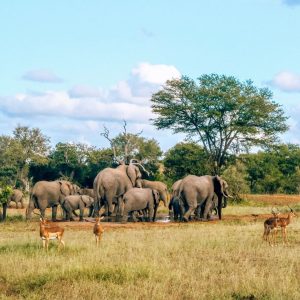Visit Lake Katwe
Visit Lake Katwe.Nestled within the Queen Elizabeth National Park in Uganda, Lake Katwe is a hidden gem that offers a fascinating glimpse into the region’s natural beauty and cultural heritage. Known for its striking salt production activities, this shallow lake is not only a vital resource for the local community but also a captivating destination for travelers seeking a unique experience. In this guide, we will explore what makes Lake Katwe special and what you can do when you visit.
1. Overview of Lake Katwe
Location
Lake Katwe is situated approximately 30 kilometers (about 19 miles) from the town of Kasese, within the boundaries of Queen Elizabeth National Park. The lake is a part of the Albertine Rift Valley, an area known for its stunning landscapes and rich biodiversity.
Salt Production
Lake Katwe is famous for its salt production, which has been a traditional activity for generations. The lake is rich in salt deposits, and locals harvest salt by evaporating water from the lake in large, shallow ponds. This unique method of salt extraction has become an integral part of the local economy and culture.
2. What to Do at Lake Katwe
a. Explore Salt Mining Activities
- Guided Tours: Engage with local guides to learn about the traditional methods of salt mining. You’ll have the opportunity to see how salt is extracted and processed, gaining insight into the livelihoods of the community members.
- Photography: The salt pans, with their shimmering surfaces, offer excellent photography opportunities. Capture the vibrant colors and unique landscapes that result from the salt extraction process.
b. Birdwatching
Lake Katwe is a haven for birdwatchers, attracting numerous bird species that thrive in the wetland environment. Look out for:
- Flamingos: During certain seasons, you may spot flocks of flamingos wading in the shallow waters.
- Other Bird Species: The lake is home to various other bird species, including herons, kingfishers, and various migratory birds.
c. Visit the Local Community
- Cultural Experiences: Interact with the local communities, who are known for their warmth and hospitality. Learn about their traditions, crafts, and daily life in the area.
- Traditional Cuisine: Try local dishes at nearby eateries or markets, sampling traditional Ugandan cuisine made from fresh ingredients sourced from the region.
3. How to Get There
Transportation
- By Road: The most common way to reach Lake Katwe is by road. You can hire a car or book a guided tour from Kasese or Queen Elizabeth National Park. The drive offers scenic views of the surrounding landscapes.
- Access from Queen Elizabeth National Park: If you’re staying in the park, you can easily include Lake Katwe in your itinerary, as it’s a short drive from popular lodges.
Best Time to Visit
- Dry Season (June to September and December to February): This is the best time to visit for wildlife viewing and to avoid muddy roads.
- Wet Season: Although less popular for travel, the wet season can provide beautiful scenery and vibrant birdlife.
4. Accommodation Options
While there are no hotels directly at Lake Katwe, nearby towns like Kasese and Queen Elizabeth National Park offer various accommodation options ranging from budget lodges to luxury safari camps. Some recommended places include:
- Queen Elizabeth National Park Lodges: Many lodges in the park provide comfortable accommodations with stunning views and easy access to Lake Katwe.
- Kasese Town Hotels: There are several hotels and guesthouses in Kasese, offering amenities for travelers.
5. Conclusion
A visit to Lake Katwe is a unique opportunity to experience the intersection of natural beauty and cultural heritage in Uganda. From witnessing traditional salt mining to enjoying birdwatching and engaging with the local community, Lake Katwe promises an enriching experience for travelers seeking something different.
Whether you’re on a broader safari in Queen Elizabeth National Park or specifically visiting Lake Katwe, make sure to include this captivating destination in your Uganda travel itinerary.
Ready to explore the wonders of Lake Katwe? Start planning your adventure today!




